Coming Soon
———————————————————————————————————
Keynote Speakers of QR2MSE 2025 & ICMR 2025
■ Keynote Speaker 1
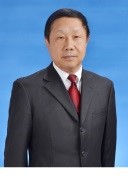
Lirong Cui , PhD, Professor,
Beijing Institute of Technology
Title: Shock Damage Evolution Processes and Their Analyses
Time:July 23-26, 2025
Abstract: Shock models have been widely studied in reliability. Most related researches have focused primarily on damage effects of shocks treated as constants after the arrivals of shocks, which may not be true in some practice. Because of the presence of self-healing, deterioration, and variation over time, the damage effects caused by the shocks may have some self-evolutions. In this talk, we shall discuss the patterns of shock arrives first, then study several possible damage effects after shock arriving. Thirdly, the shock damage analyses including modelling, assessment and decision-making are considered based on the shock arriving patterns and damage effects. Finally, the presentation is concluded and the possible future research is proposed. The talk outlines not only the related studies, but also may shed light on the related depth researches and extensive applications.
Biography:
Lirong Cui is a distinguished professor and ISEAM fellow in Business School of Qingdao University. He graduated from Tianjin Polytechnic University in 1983 (Bachelor of Engineering), from Institute of Systems Science, Chinese Academy of Sciences in 1986 (Master of Science), and from University of Wales (Swansea) in 1994 (PhD in Probability and Statistics). He worked at the Ministry of Aerospace Industry of China from 1986 to 1999, at National University of Singapore from 2000 to 2022, and at the School of Management of Beijing Institute of Technology from 2003 to May 2021. He has been working in Qingdao University since May 2021. He worked as a visiting scholar in the UK and Taiwan. He was an associate editor of IEEE Transactions on Reliability for 10 years (2005.1-2015.9). He serves currently an associate editor of IISE Transactions, Communications in Statistics, Quality Technology & Quantitative Management. He was and/or is now the branch director and deputy director of several academic organizations. He has published more than 170 SCI indexed papers and 1 English monograph. In 2005, he was named the new century outstanding talents of the Ministry of Education. He has supervised more than 40 PhD students and nearly 300 master students in mathematical and/or management subjects. He has chaired (was and is now) 6 general programs and 1 key program of the National Natural Science Foundation of China. Three international conferences he organized were funded by the National Natural Science Foundation of China as well. At present, his main research interests are: system reliability, aggregated stochastic process and repairable system modeling, degradation system reliability, finite Markov chain embedding method, cascade failures, balanced system reliability, optimal matching, Hawkes process, stochastic differential equations in reliability, data-based modeling and analyses, etc.
■ Keynote Speaker 2
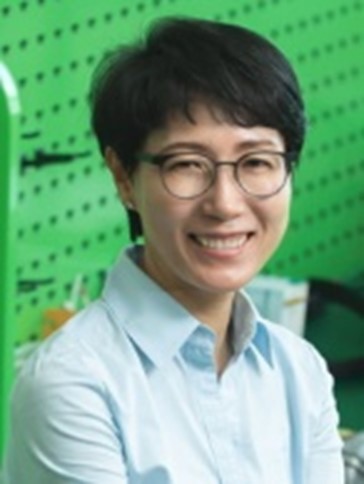
Wae-Gyeong Shin,
Chairman of the Reliability division of KSME
Vice President of Electric Power Train R&D Department, KATECH, Korea
Title: Trends and Strategic Directions for Reliability Technologies in Electric Vehicles
Time:July 23-26, 2025
Abstract: Electric vehicles (EVs) are redefining the global mobility paradigm, but their success depends heavily on achieving robust, reliable, and sustainable operation across diverse conditions. This keynote presents the emerging trends in EV reliability technologies, encompassing critical areas such as battery degradation, power electronics durability, high-voltage system insulation, and system-level failure diagnostics. This paper will examine both industrial and academic advances in accelerated life testing, failure prediction, and the integration of AI into reliability modelling and health monitoring systems. Strategic directions for the next decade—such as digital twin platforms, open reliability datasets, and modular test protocols—will also be explored. In addition, we would like to investigate the technological direction for improving the reliability of electric vehicles in Korea through case studies tailored to the needs of government policies, research innovation, and industry.
Biography:
Dr. Wae-Gyeong Shin is the chairman of the Reliability division of KSME (The Korean Society of Mechanical Engineers). She received her B.S. and M.S. degrees from Gyeongsang National University, Jinju, Korea, in 1994 and 1996, respectively. She received her Ph.D. degree from Yonsei University, Seoul, Korea, in 2010. She is presently working as the vice president of the Electric Powertrain R&D Department, Korea Automotive Technology Institute (KATECH), Cheonan, Korea. Her research interests include reliability of automotive electronic components, and technology development of electric vehicle components (Electric power train, Battery, Charing system for EV, Electrification components for EV). She has around 30 years of research experience in the automotive field.
■ Keynote Speaker 3
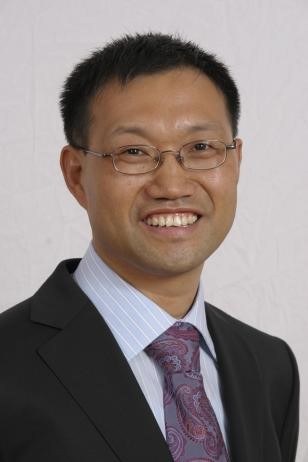
Mingjian Zuo, Fellow of the Canadian Academy of Engineering, Canada
Professor, Shandong University, China
Title: Intelligent Approaches for Practical Prognosis and Health Management
Time:July 23-26, 2025
Abstract: Machine learning has great potential for reliability assurance of engineering assets through prognosis and health management (PHM). It has been attracting attention from both academic and industrial sectors. Recent developments of machine learning, especially the evolving branches of deep learning, transfer learning, and reinforcement learning, bring new opportunities for effective PHM. This talk will first introduce general principles of prognosis and health management and machine learning. We will then present our recent research work on developing machine learning techniques for PHM. Finally, advancement and challenges in development of PHM tools for industrial settings including traditional and intelligent approaches will be presented.
Biography:
Dr. Mingjian Zuo is Distinguished Professor of Shandong University, China, Founder and Chief Scientist of Mingserve Technology Co. Ltd., China, and Professor Emeritus of the University of Alberta, Canada. He received the Bachelor of Science degree in Agricultural Engineering in 1982 from Shandong Institute of Technology, China, and the Master of Science degree in 1986 and the Ph.D. degree in 1989 both in Industrial Engineering from Iowa State University, Ames, Iowa, USA. His research interests include system reliability analysis, maintenance modeling and optimization, signal processing, fault diagnosis, machine learning, and prognosis & health management. He is Fellow of the Canadian Academy of Engineering (CAE), Fellow of Electrical and Electronics Engineers (IEEE), Fellow of the Prognostics and Health Management Society (PHMS), Fellow of the Asia-Pacific Artificial Intelligence Association (FAAIA), Fellow of the Institute of Industrial and Systems Engineers (IISE), and Founding Fellow of the International Society of Engineering Asset Management (ISEAM). He served as Co-Editor-in-Chief of Journal of Reliability Science and Engineering, Department Editor of IISE Transactions, Associate Editor of IEEE Transactions on Reliability, Associate Editor of Journal of Risk and Reliability, Associate Editor of International Journal of Quality, Reliability and Safety Engineering, Regional Editor of International Journal of Strategic Engineering Asset Management, and Editorial Board Member of Reliability Engineering and System Safety, Journal of Traffic and Transportation Engineering, and International Journal of Performability Engineering.
■ Keynote Speaker 4

Jianbing Chen, PhD, Distinguished Professor,
Tongji University, China
Title: Full Probabilistic Uncertainty Propagation in Complex Nonlinear Structures for Reliability Evaluation
Time:July 23-26, 2025
Abstract: Full uncertainty quantification and propagation are important for the reliability evaluation of complex systems. The major difficulty lies in the coupling of randomness and nonlinearity for high-dimensional systems. Incorporating the underlying physics of the system and the principle of preservation of probability will lead to a physically driven full probabilistic uncertainty propagation method, i.e., the probability density evolution method. Some new advances will be outlined, including: (1) The refined random field and stochastic process model for the uncertainty quantification; (2) The generalized density evolution equation and the dimension-reduced probability density evolution equation based on the principle of preservation of probability; (3) The global sensitivity of random parameters and the quantification of epistemic uncertainties; and (4) Global reliability based design optimization of the system. Challenging problems to be studied further will also be discussed.
Biography:
Jianbing Chen is currently University Distinguished Professor of Tongji University in the College of Civil Engineering. He is the Academic Committee member of Tongji University and vice director of the State Key Laboratory of Disaster Reduction in Civil Engineering. Dr. Chen specializes in the area of uncertainty quantification, stochastic mechanics and reliability, and published 4 books and over 210 journal papers. He received the Natural Science Award of China (2016), the IASSAR Early Achievement Award (2017), the National Science Fund for Distinguished Young Scholars (2017) and the Humboldt Research Award (2023). Dr. Chen serves as the Chair of the Executive Board of the International Association for Structural Safety and Reliability (IASSAR), member of Board of Directors of the International Civil Engineering Risk and Reliability (CERRA), the Board member of the International Joint Committee on Structural Safety (JCSS) and reporter of WP1, and serves as associate editors of ASCE-ASME Journal of Uncertainty and Risk in Engineering Systems, Structure and Infrastructure Engineering, Chinese Journal on Vibration Engineering and is in the editorial board of Structural Safety, Probabilistic Engineering Mechanics, Reliability Engineering and System Safety, etc.
■ Keynote Speaker 5

Won Young Yun, PhD, Professor,
Pusan National University, Busan, South Korea
Title: Optimal Preventive Replacement in Multi-Unit Systems
Time:July 23-26, 2025
Abstract: In this talk, we deal with a preventive replacement problem for multi-unit systems which have specific system structures. As a simple operation and environment situations. we assume that the units in systems are identical, and the failures of units are independent and follow an exponential distribution. Secondly, it is assumed that the replacement time is negligible, the fixed and variable costs to replace failed units are included, and the expected cost rate is used as an optimization criterion. We find the optimal preventive replacement policies based on Markov decision processes and try to understand their characteristics in specific system structures: k out of n:G, consecutive k out of n:G, and sensor systems . In numeral studies, we compare the optimal preventive policies with existing preventive replacement policies in terms of maintenance performance. For further studies, we analyze preventive replacement policies in extended failure and cost models and propose promising optimization problems.
Biography:
Won Young Yun is a Professor Emeritus in Department of Industrial Engineering and a Distinguished Professor in College of Engineering, Pusan National University, Korea. He received his B.S. degree in Industrial Engineering from Seoul National University, Korea, in 1982 and his M.S. and Ph. D. degrees in Industrial Engineering from KAIST, Korea, in 1984 and 1988, respectively. His current research interest includes maintenance optimization of complex systems, machine learning applications in reliability and maintenance. He has published his papers in international journals of reliability and operations research, for example, IEEE Transactions on Reliability, Reliability and System Safety, IIE Transactions, International Journal of Production Economics, etc.
■ Keynote Speaker 6
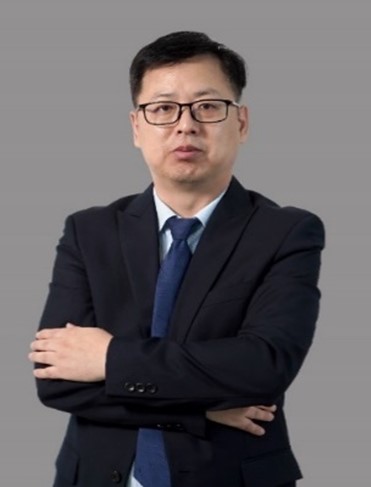
Guo-guang Lu, Researcher,
China Electronic Product Reliability and Environmental Testing Research Institute
Title: Research on Failure Mechanism and Reliability Evaluation of TSV-Based 3D Integrated System
Time:July 23-26, 2025
Abstract: In the post-Moore era, advanced packaging technology have emerged as a primary pathway for achieving device miniaturization and high performance, positioning themselves at the forefront of global semiconductor industry competition and serving as a critical strategy for Chinese semiconductor industry to overcome technological barriers. Addressing the key challenges faced by Chinese current TSV-based 3D integration technology—including limitations in defect detection capabilities, ambiguities in failure mechanisms, and deficiencies in standardized evaluation methodologies—our research focuses on advancing the theory of collaborative non-destructive testing for internal defects in TSV-based 3D integration through multi-mechanism fusion. This work further explores the failure mechanisms of critical structural components and develops robust reliability evaluation methodologies. To address these challenges, we have successfully developed a comprehensive non-destructive testing and analysis platform for TSV-based 3D integrated devices, complemented by a reliability analysis and testing platform. Additionally, we have created reliability simulation software grounded in the physics of failure, enabling precise prediction and analysis of device behavior under various conditions. A reliability model database for key structures and devices has been constructed, providing a foundation for data-driven decision-making and optimization. These efforts have culminated in the establishment of a holistic quality and reliability evaluation technology system for TSV-based 3D integrated devices. The significance of these advancements lies in their potential to enhance the high-reliability application of domestically produced devices in critical equipment, thereby supporting the strategic goals of technological self-reliance and industrial competitiveness in China’s semiconductor sector. This work not only addresses emergent technical challenges but also contributes to the long-term sustainability and innovation of TSV-based 3D integrated circuit
Biography:
Researcher Lu Guoguang, Director of the National Key Laboratory of Component Reliability Technology, Chinese Electronics Product Reliability and Environmental Testing Research Institute. In recent years, he has undertaken nearly 20 national and ministerial-level major and key projects. His research achievements have won 1 first prize for technological progress in Guangdong Province,2 national innovative team awards,2 second prizes and 2 third prizes at the ministerial level, and 1 excellent patent award in Guangdong Province. He has been granted 6 invention patents and has published over 60 SCI and EI-indexed papers.
■ Keynote Speaker 7
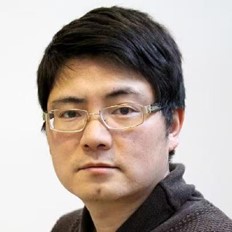
Yiliu Liu, PhD, Professor,
Norwegian University of Science and Technology, Norway
Title: Resilience Enhancer: Conceptualization and Evaluation
Time:July 23-26, 2025
Abstract: This presentation introduces a new concept of resilience enhancer as an entity and/or non-entitative approach in a sociotechnical system for providing additional resilience to the system during disruptive events. Inspired by the role of safety barrier in process safety management, resilience enhancer is expected to help systematic identification, evaluation, and comparison of resilience improvement strategies using unified metrics. Effectiveness is then proposed as a quantifiable metric of resilience enhancers. Case studies of subsea transportation systems demonstrate the practical application of this framework, where six distinct resilience enhancers are quantitatively evaluated and compared. The results reveal variations in effectiveness, emphasizing the importance of context-based selection of resilience enhancers. This presentation aims to provide a foundation for future research in designing and operating resilient sociotechnical systems.
Biography:
Yiliu Liu is a professor at the Department of Mechanical and Industrial Engineering, Norwegian University of Science and Technology. His main research interests include system reliability and resilience, safety-critical system and safety barrier analysis, and risk-informed decision-making etc, with applications in the sectors of offshore oil & gas, renewable energies and transportation. Dr. Liu has published more than 200 papers on international journals and conferences. Currently, he is the co-chair of Sweden-Norway joint section of IEEE Reliability Society, and the editor-in-chief for International Journal of Reliability and Safety, and the director of International RAMS (reliability, availability, maintainability, and safety) master program at NTNU. He also manages several internationally collaborative projects in the fields of safety and reliability engineering.
■ Keynote Speaker 8
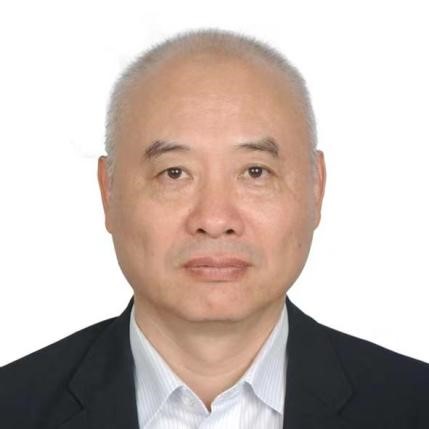
Xin Wang, Deputy Chief Engineer,
Nuclear Power Operations Research (Shanghai) Co., Ltd.
Title: The Development and Future of Equipment Reliability within CNNC Nuclear Power Plants
Time:July 23-26, 2025
Abstract: Introduce the development process of CNNC nuclear power, the equipment reliability management system and management methodology of nuclear power plants, as well as the challenges and development of future equipment reliability management.
Biography:
Xin Wang, Deputy Chief Engineer of Nuclear Power Operations Research (Shanghai) Co., Ltd., with over 30 years of experience in NPP maintenance and equipment management, and the recent focus has been on NPP equipment reliability improvement.
■ Keynote Speaker 9
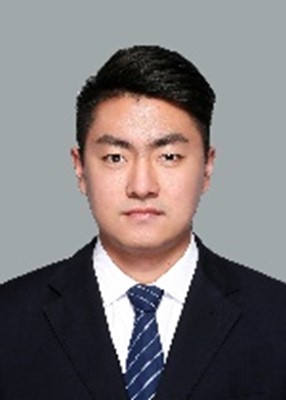
He Li, PhD, Marie-Curie Research Fellow,
Liverpool John Moores University, UK
Title: Reliability and Maintenance of Floating Offshore Wind Systems
Time:July 23-26, 2025
Abstract: This talk will highlight key aspects of the reliability and maintenance of floating offshore wind systems, including turbines and wind farms. It will begin with an overview of the development and emerging trends in the offshore wind energy sector. A failure dataset, AI-based data analysis methods, and new insights into failure modes and maintenance characteristics of floating offshore wind turbines will be discussed. The presentation will cover failure analysis and prevention strategies, along with the design of a health monitoring system tailored for floating wind turbines. Transformation-based reliability analysis methodologies will also be introduced to predict reliability characteristics, especially in the context of limited domain knowledge about these emerging systems. Furthermore, real-time, risk-based opportunistic maintenance strategies for floating wind turbines and farms will be presented. The session will conclude with an availability estimation, demonstrating how maintenance scheduling performance can be evaluated. Together, these insights aim to improve the cost-effectiveness and safety of operations in floating offshore wind farms.
Biography:
Dr. He Li is a researcher at Liverpool John Moores University in the UK. He received a PhD from the University of Electronic Science and Technology of China, China. His research primarily focuses on the failure, risk, reliability, and maintainability of complex systems. Dr. Li is a Marie-Curie Fellow and a top 2% scientist. He has coordinated several projects in terms of the operation and maintenance of offshore systems funded by Europe and China and published a number of monographs, peer-reviewed journal papers, book chapters, and conference papers, including several highly cited/hot papers as well as best paper awards. Dr. He Li is a Fellow of the International Society of Engineering Asset (ISEAM) and a Technical Committee Member of the European Safety and Reliability Association (ESRA). He also won several awards, like A ‘Design (The only Gold Award in 2023), and was recognized as an Emerging Leader by the MST Journal. He has been an associate editor of the Complex & Intelligent Systems Journal and the Journal of Mechanical Science and Technology, etc. Dr. He Li has also been a guest editor and a member of the editorial board of over 10 Journals and has been a session chair, an organisation co-chair, and a program committee member of more than 20 international conferences, such as ESREL/QR2MSE/ICMR/ISSSR/ICRMS.
■ Keynote Speaker 10
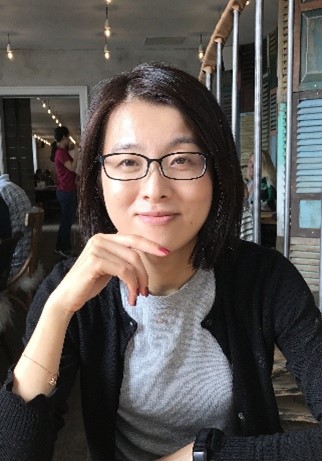
Lu Jin, PhD,
University of Electro-Communications, Tokyo
Title: Optimizing Decision-Making under Uncertainties: From Maintenance Strategies to Financial Applications
Time:July 23-26, 2025
Abstract: Effective decision-making under uncertainty is a critical challenge in various fields, particularly in engineering and finance. In this talk, we focus on developing optimal decision strategies for systems operating in complex and uncertain environments. Our first topic addresses condition-based maintenance (CBM), where timely and cost-effective maintenance decisions must be made based on limited and potentially noisy condition monitoring data. We present a framework that incorporates key sources of uncertainty, enabling the derivation of practical and efficient maintenance policies that contribute to improved system reliability and reduced operational costs. In the second part of the talk, we extend the decision-theoretic perspective to financial engineering. Specifically, we investigate the pricing of American-style options in a market where economic conditions evolve stochastically over time. By formulating the pricing problem as a decision process with probabilistic regime transitions, we investigate how optimal exercise strategies evolve under various economic scenarios. This example highlights the versatility of decision models and their potential to guide actions in highly uncertain contexts. Through these applications, we demonstrate the broader relevance of structured decision-making frameworks and provide insights into how uncertainty can be effectively managed across disciplines.
Biography:
Lu Jin received her Master’s and Ph.D. degrees in Japan, sponsored by the Ministry of Education, Japan. She is currently an Associate Professor in the Department of Informatics at the University of Electro-Communications, Tokyo, Japan. Her research interests include system reliability, maintenance planning and optimization, decision-making under uncertainty, and investment strategy in finance. She received the Outstanding Young Scientist Award and the Best Paper Award from the IEEE Reliability Society Japan Chapter in 2006, the Nikkei QC Literature Prize in 2014, and over 25 other paper awards as a co-author. She is a member of the Japanese Society for Quality Control (JSQC), the Reliability Engineering Association of Japan (REAJ), the Institute of Electronics, Information and Communication Engineers (IEICE), the Japan Society of Maintenology, and IEEE.